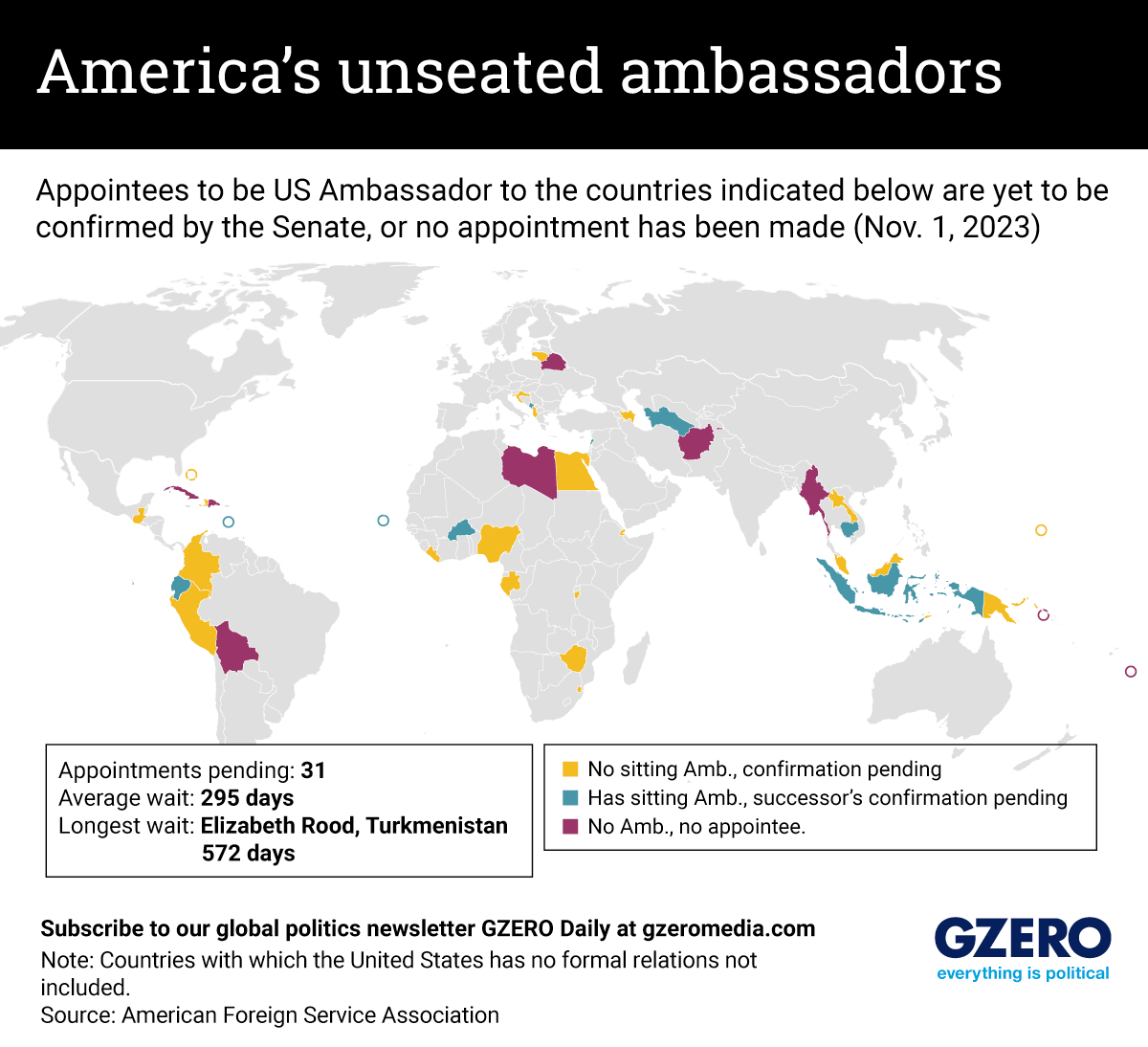November 01, 2023
On Tuesday, the Senate confirmed former Obama administration Treasury Secretary Jack Lew as ambassador to Israel, ending a glaring and embarrassing vacancy amid Israel’s conflict with Hamas.
Lew waited 56 days for his nomination to clear the Senate, which might seem like an eternity but is lightning fast by today’s standards. Some of Lew’s fellow nominees have been waiting 10 times as long to take up their appointments overseas. Not everyone waits that long, of course, but if you find yourself appointed to a Senate-confirmed position soon … don’t quit your day job: The folks already in line for ambassadorships have clocked an average of 295 days.
The culprit is arcane Senate procedure — and a member with an agenda. Most confirmations are passed out of committee by unanimous consent to bypass cumbersome protocol, but a single senator can “hold” a nomination indefinitely just by stating their intention to do so.
Sen. Rand Paul (R-KY) has been doing just that, refusing to confirm the Biden administration’s appointments until he receives documentation about the origin of the COVID-19 virus. The State Department says it has provided him with all the pandemic-related information they have.
Nonetheless, appointments to 31 countries remain to be confirmed. Egypt, Colombia, Nigeria, Haiti, and Azerbaijan, just to name a few countries that have topped headlines lately, are missing US ambassadors. And should the confirmation delays continue to grow, as the Bipartisan Policy Center shows they have for decades, even more crucial diplomatic appointments will remain vacant.
Have a look at the US missions without a confirmed ambassador, successor, or nominee.
More For You
41.5%: The proportion of Havana’s garbage trucks that were operational this month, according to state-run media, as Cuba’s fuel crisis prompts a garbage crisis.
Most Popular
- YouTube
Sovereignty has become one of the most powerful, and least defined, words in tech policy. At the 2026 Munich Security Conference, SAP global head of government affairs, Wolfgang Dierker, explains why governments and enterprise customers are demanding more control over their data, cloud infrastructure, and AI systems amid rising geopolitical uncertainty.
- YouTube
On the sidelines of the 2026 Munich Security Conference, Annemarie Hou, Executive Director of the United Nations Office of Partnerships, joined Tony Maciulis to discuss the power of women leaders in global decision-making.
Security in a fragmented world: Cyber deterrence, NATO reform & the future of trusted tech
Feb 14, 2026
- YouTube
In a new Global Stage livestream from the 2026 Munich Security Conference, New York Times White House and national security correspondent David Sanger moderates a conversation with Ian Bremmer (President & Founder, Eurasia Group and GZERO Media), Brad Smith (Vice Chair & President, Microsoft), Benedetta Berti (Secretary General, NATO Parliamentary Assembly), and Wolfgang Dierker (Global Head of Government Affairs, SAP) on how technology and defense are colliding in real time.
© 2025 GZERO Media. All Rights Reserved | A Eurasia Group media company.
